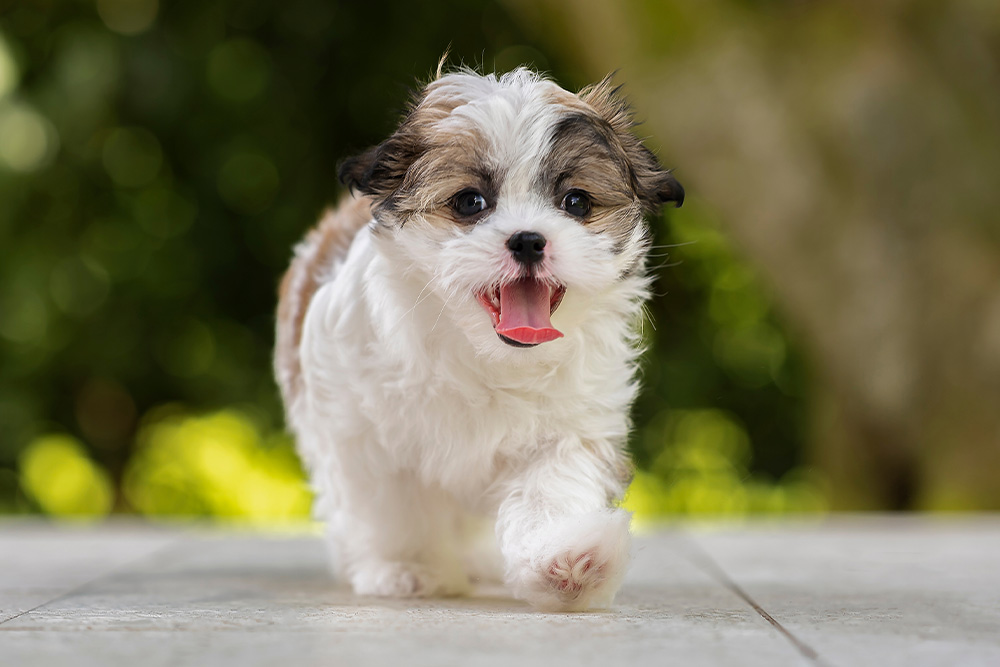Rottweiler
Before you adopt or buy a dog, make sure that you are aware of the specific requirements of a breed. The experience of taking care of Rottweiler is also peculiar. Not to mention that these dogs have some specific traits and require commitment. That is why not everyone can be a Rottweiler owner.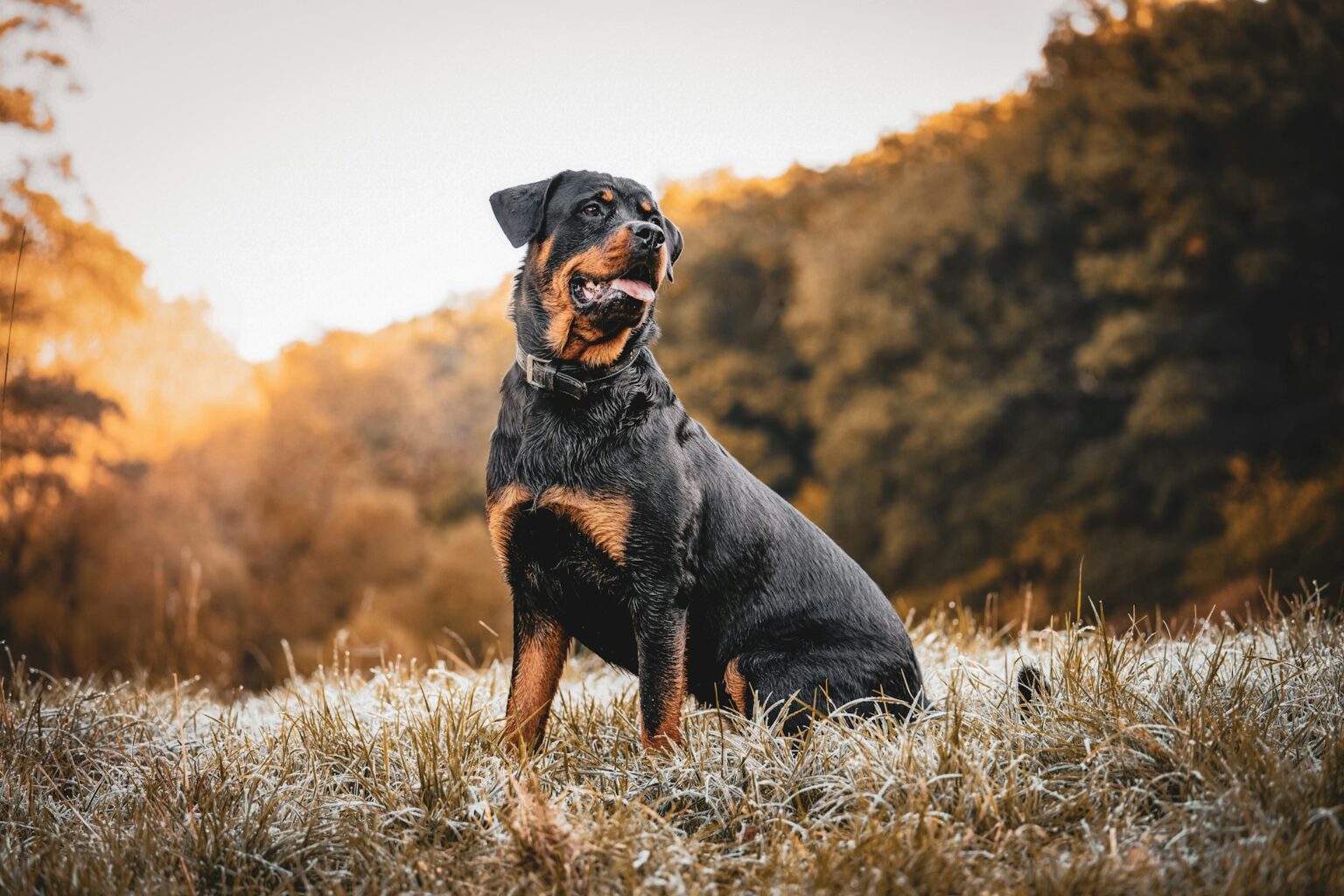
No matter what breed you prefer, every dog can bring plenty of joy into their owner’s life. But let’s not forget that the decision to have a dog is a more serious commitment. On that note, it is definitely worth taking some time to consider which breed is right for you. If you want a Rottweiler, get to know the needs and demands of the breed. Find out the details of these dogs in terms of appearance and temperament. Learn the history of the breed and determine where the Rottweiler came from. Read this article to watch out for the most common health issues. Go through the instructions for care especially. Before buying a Rottweiler, check if you will be able to treat it well.
Appearance
Rottweiler is a dog breed that grows to medium or large size. These are big, muscular dogs, so they look very imposing. With a stable posture, it highlights their power. You might like these impressively huge dogs, but remember what you are getting into! Rottweilers are very strong dogs, so if you have no experience handling them, you should know that it is not easy.
The coats of these dogs are relatively short, thus not creating many issues for grooming. The breed have a double coat, which features a water-repellent outer layer. Due to this, the dogs can spend a long time outside playing without feeling uncomfortable. The color of Rottweiler fur can vary. The breed typically has black fur with distinctive beige or red facial markings on the snout, chest, legs, and over the eyes.
Rottweilers have a wide head along with a solid jaw. They have intelligent and self-assured dark oval-shaped eyes. Their ears are drooped and medium-sized. They also have big dog teeth, so their bite can be painful. Rottweilers likewise have medium-length tails, with the tail typically held high. In days gone by, their tails were cut off so they wouldn’t get in the way at work, but this invasive intervention is now outlawed, as it’s entirely unnecessary.
Rottweilers paws are muscular and solid, supporting any physical activity. They look strong and confident, making them great guardians and companions. If their looks have not frightened you off and you are prepared to be a good and responsible owner, then a Rottweiler can be your best friend.
Rottweiler Breed History
The Rottweiler is an unusual breed that likely descends from a Molosser ancestor. It is also a mastiff, a category of big dogs that are muscular and powerful in stature. This large breed of dog was already present in ancient Rome, which definitely makes it one of the oldest breeds. Rottweilers were initially used for guarding cattle and for transportation purposes. Farmers appreciated their strength and intelligence, too. Rottweilers also became popular guard dogs in cities during the Middle Ages.
From the time rail transport was developed, these dogs became less needed, and the number of Rottweilers decreased. Fortunately, the dedication of committed breed fanciers caused the breed to gain interest once more. The use of Rottweilers in the police and military also helped to bring the breed back to life. These dogs were then crossed with sheepdogs to create the well-known Rottweiler breed. In 1907, the first official Rottweiler club was formed in Germany.
Rottweilers stayed popular for a long time as they were good watchdogs and companions and were used for many jobs. Rottweilers, however, have become less common of late. Nonetheless, as of late, Rottweilers have diminished in numbers.
Rottweiler Personality
Once you get an idea of getting a Rottweiler, you need to familiarise yourself with its psychological profile because every breed has some unique character and temperament. Dogs of this breed can be very connected to their owners and thus make superb companions. But underneath their charm lies a strong character that will sometimes test your patience. They can have a lot of attitude that needs to be reined in now and then!
In fact, males, in particular, can display a lot of dominance and aggression. So, owners need to be consistent and patient with these dogs. Any propensity to aggressive behavior should be reduced through training. They are also suspicious of strangers and need appropriate socialization from an early age. It also helps them to get along well with other animals. However, they should be supervised around children.
However, this breed can be loyal and protective in the hands of a responsible and loving handler. Rottweilers are always very alert and have good instincts, making them excellent guard dogs. Due to their immense bravery, they will protect their owner from any threat. High intelligence and fast learning make them work dogs good for many jobs in rescue, therapy, and sports as well.
A common perception is that Rottweilers are an aggressive dog breed, but with the proper upbringing and appropriate socialization with people, they make gentle, loving pets. Rottweilers are strong-willed dogs. People who adopt a dog of this breed must devote their time to training and socialization to ensure that their dog grows up to be a well-adjusted and functional member of society.
Rottweiler Health
Certain illnesses can be prevalent in certain breeds of dogs. So, new dog owners should be made aware of what risks they are taking. If you own a pure-breed dog, you should get regular check-ups for its health, vaccinations, and parasite prevention. Adequate nutrition is another factor to consider, which needs to be breed-specific. Also, regular exercise and care are essential to keep your dog in shape. Genetic testing is another investment you could make, which might find some sort of genetic predisposition to a disease. Also, before purchasing a pedigree dog, it pays to investigate the family health record of the breed.
Rottweilers are large dogs, and their body structure and genetics make them more susceptible to many diseases. For this reason, Rottweiler owners should make sure to test their dogs as needed and provide proper veterinary attention. This type of monitoring allows early detection of potential health problems, which greatly impacts the quality of life of these dogs. Please keep in mind that a dog is not just a pet; it is a living being that needs our help and attention.
Aggression
Future Rottweiler owners need to be aware of problem behavior with the dog. One study shows that aggression is the most common disorder in this breed. Without proper conditioning, these dogs tend to act dominantly and unfriendly. Rottweilers are natural hunters, so they are very brave and alert. But they might misread stimuli and sense danger in many situations. That’s what triggers their aggression and the potential for an attack.
Because of this, future owners will need to be aware of any aggressive tendencies, particularly on walks or when around kids. Aggression is often seen among males, while females are seen as softer and calmer. Remembering that poor training can produce poor dog behavior is also important. With this breed, patience and calmness are essential since harsh and aggressive training can end badly.
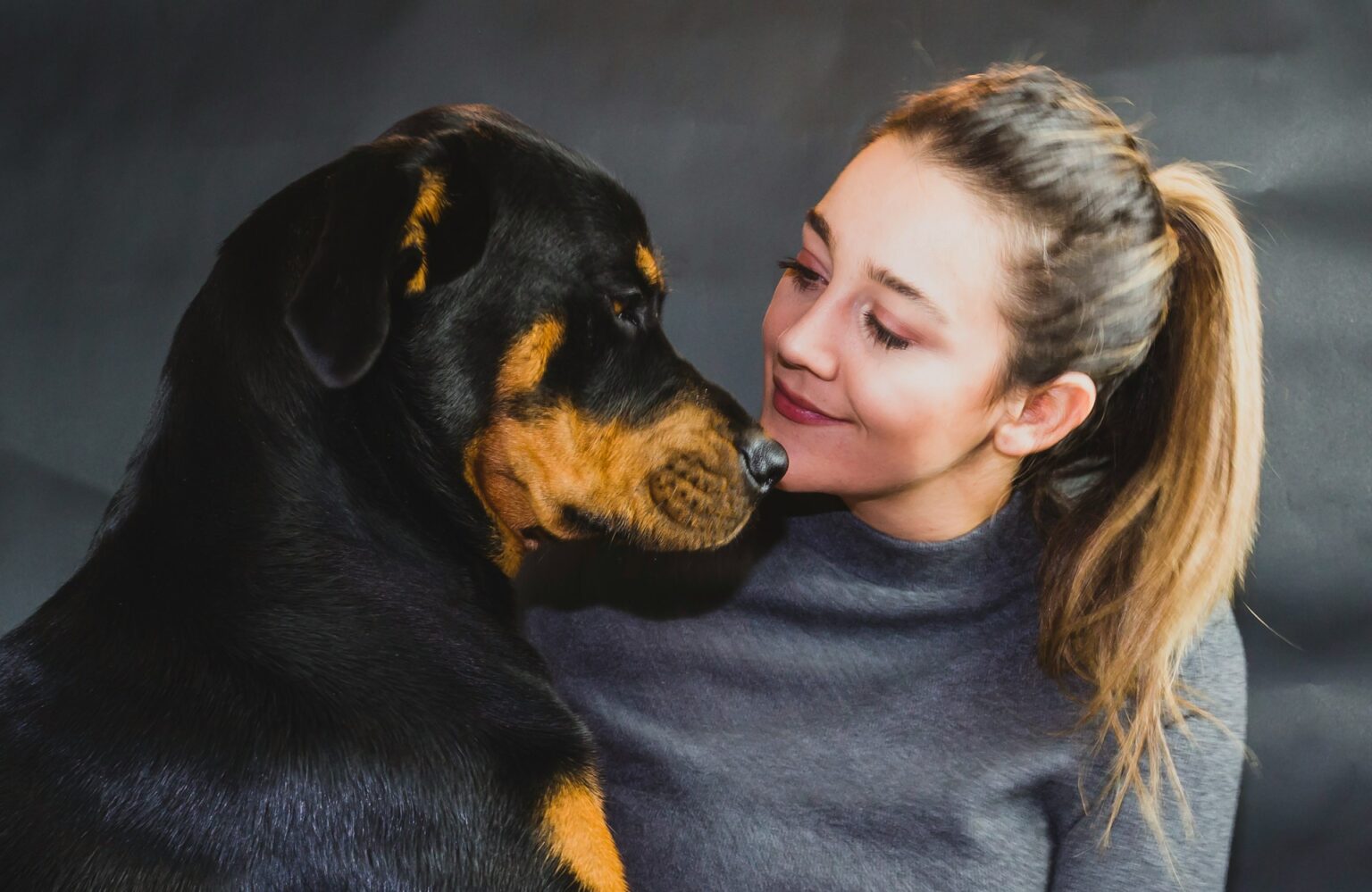
Obesity
These dogs also have a tendency to be overweight and obese. This genetic make-up that encourages gaining weight may be linked to their metabolism. A lack of activity and a bad, high-calorie diet can also contribute to increasing weight. These dogs can have an insatiable appetite, so owners will have to ensure their dog gets the correct amount of food and ratio of nutrients. Having to feed such a big dog could be troublesome for a first-time dog owner; therefore, it’s best to talk about their diets and nutrition with a vet.
Rottweilers also need a lot of exercise, and if owners fail to meet that need, the dog can easily become obese. Maintaining a Rottweiler’s body weight is the most vital thing as the overweight dogs are more prone to a number of diseases. Weight-related disorders are some of the most common causes of premature death in the breed.
Ear Infections
They can also have ear infections, which are common in this breed. This has to do with the outward structure of their ears. Some infections occur in breeds with hanging ears just because they are good at storing warmth and dirt. Otitis externa is also common in Rottweilers. Inflammation of the dog scratching their ear. However, you might notice other signs, including smelly discharge, redness and swelling around the ear, or a lot of ear wax. In these cases, a trip to the vet and course of treatment is essential. To prevent such infections effectively, owners should also keep their dog’s ears clean and dry.
Musculoskeletal Disorders
The other illnesses that Rottweilers tend to be susceptible to are joint and bone diseases. The most common disease in this breed is osteoarthritis, which may cause lameness. Because of their size, the dogs carry a lot of weight, and this weight imposes excessive stress on their cartilage and joints, leading to premature wear and tear. These dogs also tend to grow rapidly, which can easily disturb osteoarticular system development. And there is a high genetic component as well.
Furthermore, since joint issues can be exacerbated by poor diet and lack of exercise, Rottweiler owners must pay particular attention to the health and fitness of their animals. It is important because the more common cause of death for this breed is progressive musculoskeletal diseases, which may ultimately leave the dogs incapable of standing.
Dermatological Problems
Rottweilers can also have skin problems as well. One type of common infection is post-traumatic dermatitis. It is a skin condition also known as a hot spot. This infection is caused by injury, such as a dog scratching itself a lot, which irritates the skin. Too much scratching can, in turn, be caused by allergies, insect bites, and more. This will cause red skin lesions and loss of fur at the wound site. That’s why Rottweiler owners need to groom their dogs regularly.
Gastrointestinal Problems
Another common complaint in Rottweilers is digestive problems. These dogs have sensitive stomachs. They are more likely to experience allergies to foods and infections of the gastrointestinal tract. Whatever the reason, dogs commonly suffer signs like diarrhea, vomiting, and abdominal pain. Thus, it creates the necessity for owners to compose dog diets carefully. Owners must select ngredients with precaution as they can contain allergens or irritants. It is very important to introduce new food products slowly and watch for any symptoms of intolerance to each new ingredient. Any change in diet should be preceded by a consultation with a vet to make sure the dog is getting the right nutrition and to avoid digestive issues.
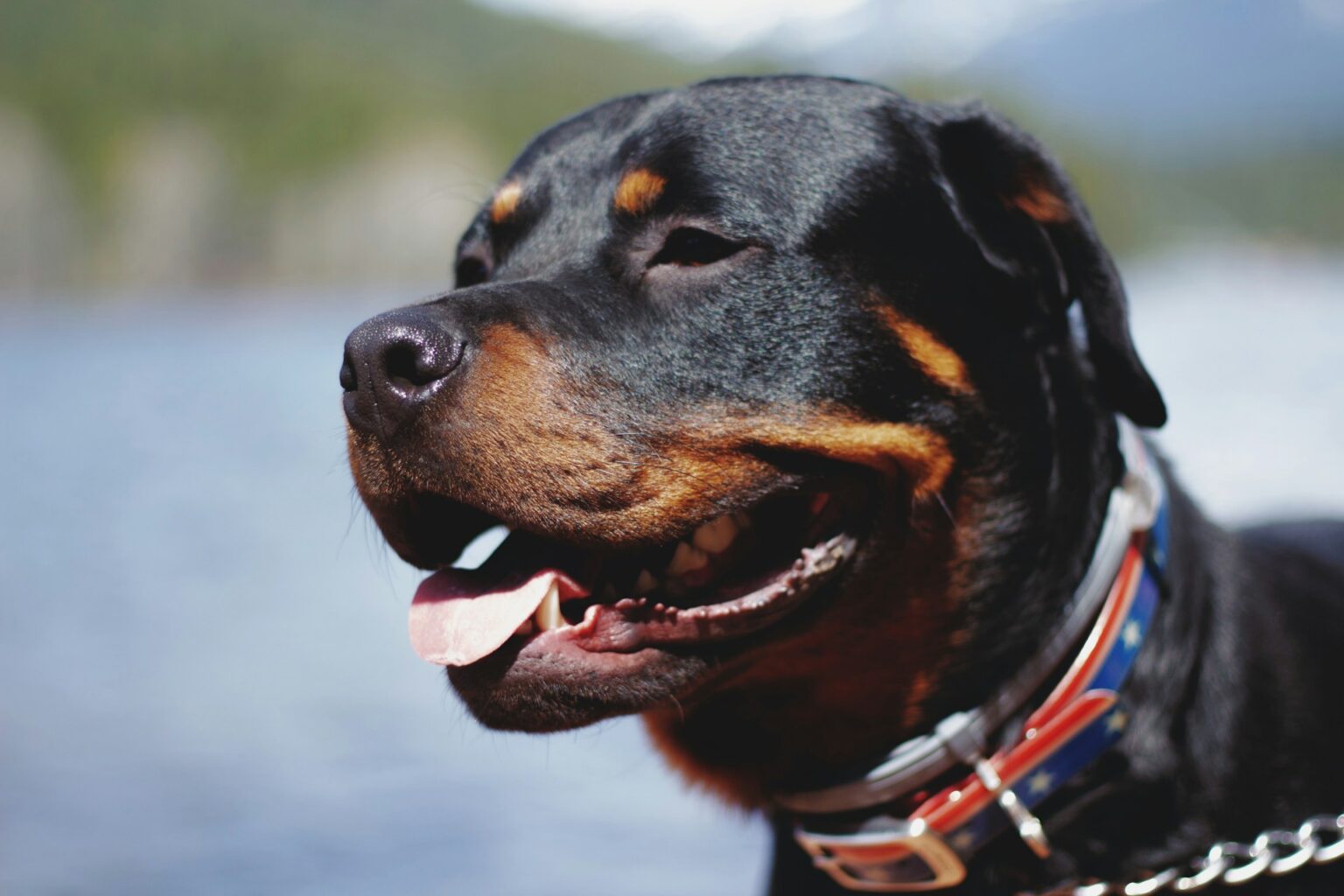
Cancer
Unfortunately, cancers are also common in the breed. One of the most frequent causes of early mortality in Rottweilers is cancer. One such disease is osteosarcoma, a highly aggressive bone tumor that frequently affects larger breeds. With this disease, the bone structure becomes weaker, which increases the chance of breaking.
To identify the disease as early as possible, dog owners should monitor their pets for abnormal behavior (e.g., the avoidance of weight-bearing on one limb). And symptoms such as these require an immediate trip to a vet who can arrange some imaging. There are no known causes for osteosarcoma, which makes prevention improbable. Despite this, attending the vet regularly, feeding your dog a good diet, and providing plenty of exercise whilst also preventing injuries can ensure your dog will stay fit and healthy for a long time.
Rottweiler Care
Due to their extreme strength and confidence, Rottweiler dogs are not recommended for first-time owners. This breed needs good care. Their well-being depends on a safe environment for them. Diet has the same importance in their life as physical activities. Grooming also should not be overlooked. Even short-haired dogs should not escape this kind of care. Rottweiler behavior is also influenced by a key factor: training. Serious training is a requirement with this breed to eliminate issues. All of these factors are important for the Rottweiler to be a happy and polite companion.
Safe Environment
Rottweilers are big dogs, which means they need lots of space. If you live in a flat, you must take your friend for a long walk as often as possible. However, the best option is to live in a house with a garden. At the same time, however, you will need proper fencing. These dogs are good guards, and they will protect their territory. But, if any other animal approaches your home or a stranger tries to get in, your dog may react aggressively. Rottweilers are companion dogs as well and need human interaction. Behavioral problems can arise from leaving them alone for long hours. Hence, it is quite necessary to spend quality time with them.
Diet and Nutrition
It is important to maintain Rottweilers at a normal weight, as they are prone to obesity. The diet should be high in protein, and low in carbohydrates. Food allergies are also common. So, it’s a good practice to avoid cereal or any other ingredient that may promote allergic reactions. When in doubt, opt for natural ingredients and hypoallergenic dog food formulas.
Also, because of their delicate stomach, the changes in the diet must be gradual to prevent digestive problems. A vet can also help with a dietary plan that is best for the dog so you can monitor its health if there are any issues. And remember, big dogs eat a lot, so purchasing a lot of good food is going to cost you something.

Physical Activity
Rottweilers are one of the dog breeds that require intensive physical activity. These powerful creatures require plenty of outdoor activity, like long walks, running, or games. This keeps them in shape and maintains a good mental condition so that they do not develop behavioral problems. Rottweilers are also extremely clever and, as such, need lots of mental stimulation. You can help them meet their needs through regular training and interactive toys.
Grooming
Rottweilers do not have hair that needs a lot of care, but grooming is essential for their health. Brushing will get rid of old hair and dirt. Also, Rottweilers are susceptible to skin diseases, so examining the skin for lesions is important. Rottweilers can also suffer from ear infections, so the ears need checking and cleaning regularly. Use special ear cleaning products to prevent irritating the sensitive skin within the ear.
Training
If you really want to have a Rottweiler, the most essential thing is training! They have the tendency to be aggressive. Hence, you have to learn how to train them correctly; otherwise, seek help from a behaviorist. Training them should include obedience as well as socialization. Nonetheless, dogs must be treated with respect and patience. Both poor training and incorrect training may cause a lot of trouble. Such dogs can be fearful or aggressive towards people or other animals.
Rottweiler Dog FAQs
So, did you get to know all you wished to know about the Rottweiler pure breed? Or not? If you’re still on the fence, keep reading. Here’s a look at what questions potential dog owners commonly ask.
Is a Rottweiler a Good Family Dog?
Rottweilers can be good family dogs as long as they are well-trained and socialized from puppyhood. They are great companions for children because they are loyal and intelligent. However, some people are afraid of their aggressive tendencies, and many families with children want to avoid this risk. So, if you are not fully committed to training your dog, it may not be right for you.
What Size Is a Rottweiler?
As you may imagine, a Rottweiler is a large dog. In fact, as an adult and fully grown, a Rottweiler can stand about 24 inches or 60 centimeters tall. This type of dog can also weigh about 110 pounds or 50 kilograms as an adult dog.
How Much Does a Rottweiler Cost?
Depending on the breeder, a Rottweiler puppy is more expensive, ranging from one thousand to seven thousand dollars. However, there are not many breeders of this dog since Rottweilers have lost some of their popularity lately.

Source
- Dan G. O’Neill, Wee Yin Seah, David B. Church, Dave C. Brodbelt (2017). Rottweilers under primary veterinary care in the UK: demography, mortality and disorders.
https://pmc.ncbi.nlm.nih.gov/articles/PMC5698930/
- Rottweiler
- Appearance
- Rottweiler Breed History
- Rottweiler Personality
- Rottweiler Health
- Aggression
- Obesity
- Ear Infections
- Musculoskeletal Disorders
- Dermatological Problems
- Gastrointestinal Problems
- Cancer
- Rottweiler Care
- Safe Environment
- Diet and Nutrition
- Physical Activity
- Grooming
- Training
- Rottweiler Dog FAQs
- Is a Rottweiler a Good Family Dog?
- What Size Is a Rottweiler?
- How Much Does a Rottweiler Cost?


